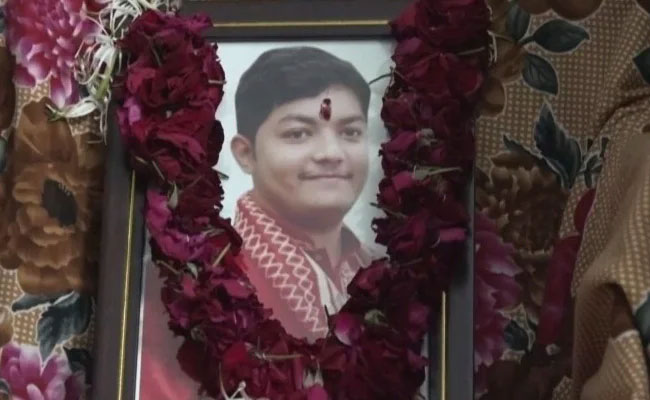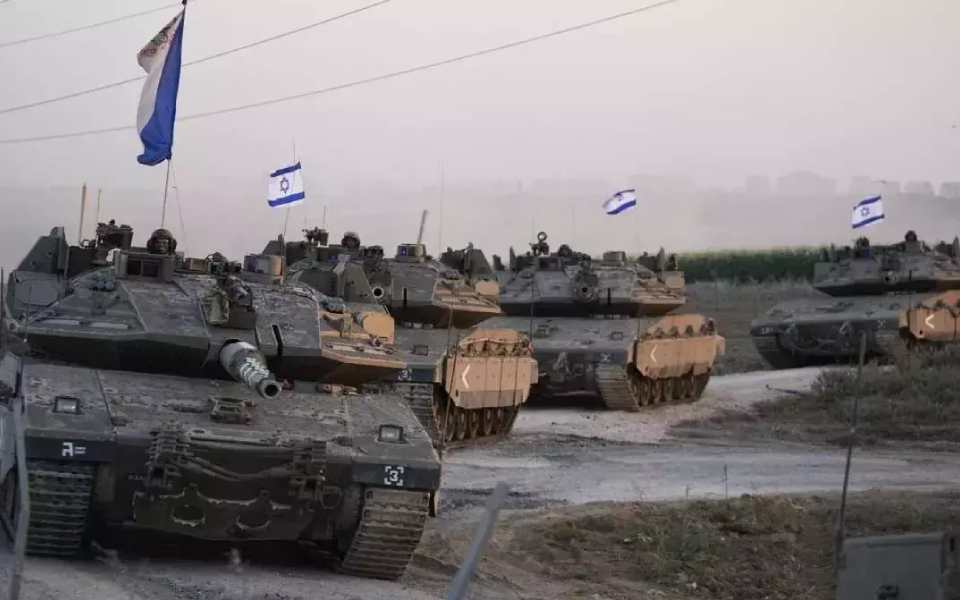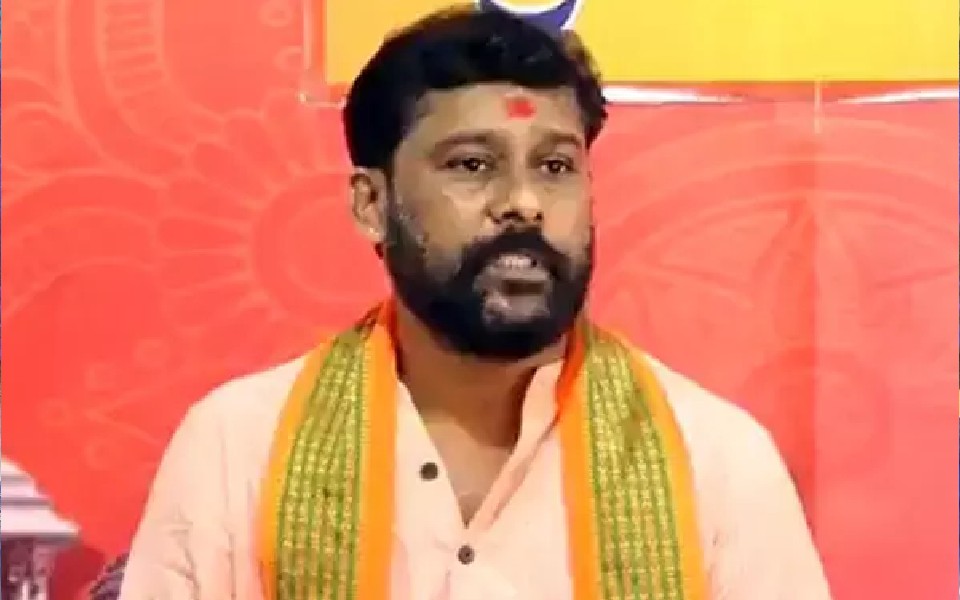Mumbai (PTI): Indian Institute of Technology Bombay (IITB) student Darshan Solanki who allegedly committed suicide had told his mother that caste-based discrimination existed on the institute's campus, a chargesheet filed in the case by police has said.
He also told his mother during telephonic conversations that the behaviour of fellow students changed when they learned about his caste, it claimed.
The statement of Solnaki's mother is part of the chargesheet filed by the city police on Tuesday before a special court for Scheduled Castes and Scheduled Tribes (Prevention of Atrocities) Act.
The chargesheet named fellow student Arman Khatri who is out on bail after being arrested for allegedly abetting the suicide.
Solanki, a first-year student of B-Tech (Chemical) course who hailed from Ahmedabad, allegedly jumped to death from the seventh floor of a hostel building on the IITB campus in Powai area of Mumbai on February 12, 2023, a day after the semester exams ended.
The police claimed Khatri had allegedly threatened to kill Solanki after the latter spoke 'offensively' about religion.
Solanki's mother in her statement to police said during a telephonic conversation in December 2022, Solanki told his sister that there was caste-based discrimination at the premier institute.
When his friends came to know of his caste, there was a change in their behaviour, Solanki's mother said in the statement.
Solanki again spoke about this to his sister when he visited them in January 2023 during Makar Sankranti holiday, the chargesheet said.
On February 12, he spoke to his mother on phone around 12.20 pm and said he would visit home on February 14 and they should invite all their relatives for a get-together, his mother told the police.
Only two hours later, Solanki's father got a call informing his son had suffered a fall, she said in the statement.
Solanki's sister and aunt too, in their statements, claimed he faced discrimination and observed change in the behaviour of other students when they learnt of his caste.
He spoke about how he was enjoying his studies, but also mentioned that some students and friends always told him that he was getting free education and taunted him, Solanki's aunt told the police.
The chargesheet included statements of 55 witnesses, including some students and professors.
Let the Truth be known. If you read VB and like VB, please be a VB Supporter and Help us deliver the Truth to one and all.
Tel Aviv, May 5 (AP): Israel approved plans Monday to capture the entire Gaza Strip and to stay in the Palestinian territory for an unspecified amount of time, two Israeli officials said, a move that, if implemented, would vastly expand Israel's operations there and likely draw fierce international opposition.
Israeli Cabinet ministers approved the plan in an early morning vote, hours after the Israeli military chief said the army was calling up tens of thousands of reserve soldiers.
The new plan, which the officials said was meant to help Israel achieve its war aims of defeating Hamas and freeing hostages held in Gaza, also calls for hundreds of thousands of Palestinians to move to Gaza's south. That would likely amount to their forcible displacement and exacerbate an already dire humanitarian crisis.
A third person, a defence official, said the new plan would not begin until after US President Donald Trump wraps up his expected visit to the Middle East this month, allowing for the possibility that Israel might agree to a ceasefire in the meantime. All three officials spoke on condition of anonymity because they were discussing military plans.
Israel withdrew from Gaza in 2005 after a decades-long occupation and then imposed a blockade on the territory along with Egypt. Capturing and potentially occupying the territory again for an indefinite period would not only further dash hopes for Palestinian statehood, it would embed Israel inside a population that is deeply hostile to it and raise questions about how Israel plans to govern the territory, especially at a time when it is considering how to implement Trump's vision to take over Gaza.
Since Israel ended a ceasefire with the Hamas group in mid-March, Israel has unleashed fierce strikes on the territory that have killed hundreds. It has captured swaths of territory and now controls roughly 50 per cent of Gaza. Before the truce ended, Israel halted all humanitarian aid into the territory, including food, fuel and water, setting off what is believed to the be the worst humanitarian crisis in nearly 19 months of war.
The war began when Hamas-led group attacked southern Israel, killing 1,200 people and taking about 250 hostages. Israel says 59 captives remain in Gaza, although about 35 are believed to be dead.
Israel's offensive has displaced more than 90 per cent of Gaza's population and, Palestinian health officials say, killed more than 52,000 people there, many of them women and children. The officials do not distinguish between combatants and civilians in their count.
The Palestinian Health Ministry in Gaza said Monday that the bodies of 32 people killed by Israeli strikes have been brought to hospitals over the past 24 hours.
Israel is trying to ratchet up pressure on Hamas'
The Israeli officials said the plan included the “capturing of the strip and the holding of territories.”
The plan would also seek to prevent Hamas from distributing humanitarian aid, a role that Israel says strengthens the group's rule in Gaza. It also accuses Hamas of keeping the aid for itself, without providing evidence. Aid workers deny there is a significant diversion of aid to fighter group, saying the UN strictly monitors distribution.
The officials said Israel was in touch with several countries about Trump's plan to take over Gaza and relocate its population, under what Israel has termed “voluntary emigration." That proposal has drawn widespread condemnation, including from Israel's allies in Europe, and rights groups have warned it could be a war crime under international law.
Hamas officials did not return calls and messages seeking comment on the plans.
For weeks, Israel has been trying to ratchet up pressure on Hamas to get the group to agree to its terms in ceasefire negotiations. But the measures do not appear to have moved Hamas away from its negotiating positions.
The previous ceasefire was meant to lead the sides to negotiate an end to the war, but that has remained elusive. Israel says it won't agree to end the war until Hamas' governing and military capabilities are dismantled. Hamas, meanwhile, has sought an agreement that winds down the war without agreeing to disarm.
Israel's expansion announcement angered families of hostages who fear that any extension of the conflict endangers their loved ones. The Hostages and Missing Families Forum, which supports families, urged Israel's decision-makers to prioritise the hostages and secure a deal quickly.
At a Knesset committee meeting Monday, Einav Zangauker, whose son Matan is being held hostage, called on soldiers “not to report for reserve duty for moral and ethical reasons."
Some reservists have indicated they will refuse to serve in a war they increasingly view as politically motivated.





